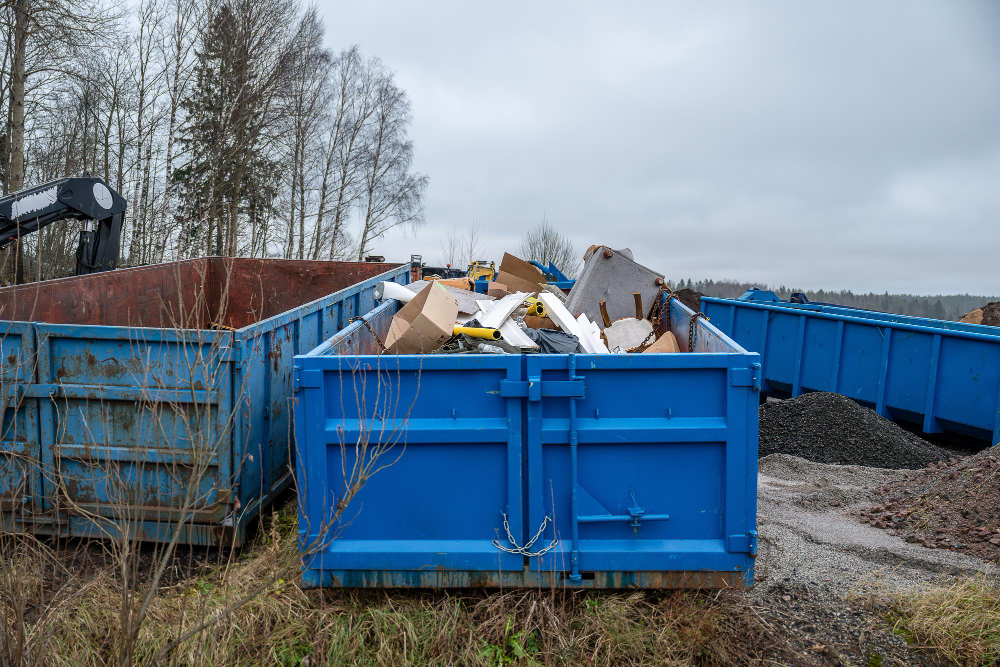Do You Need a Roll Off Container Permit in Florida?

Renting a roll-off container might seem straightforward, but understanding whether you need a permit to place one can save you from fines and unnecessary complications. If you're planning a construction project, home renovation, or major clean-out in Florida, knowing the ins and outs of roll-off container permits is essential.
This blog aims to clarify when a permit is required, walk you through the application process, and ensure you're fully prepared so your project runs smoothly. If you're considering roll-off container rental in Ocala, FL, this guide is especially relevant to you.
What Is a Roll-Off Container?
Before we dig into the permitting process, let's first define what a roll-off container is.
A roll-off container is a large, open-top dumpster designed for projects that generate significant debris, such as:
- Home renovations
- Landscaping projects
- Roofing jobs
- Construction site clearing
These containers are delivered to your location via specialized trucks, "rolled off" onto your property, and picked up once you're done. Their convenience and versatility make them a popular choice for both residential and commercial projects.
When Do You Need a Permit for a Roll-Off Container in Florida?
Permitting requirements often depend on where you plan to place the roll-off container and the specific ordinances in your area. Here's what you need to consider:
1. Placement in Public Areas
If you're planning to place the roll-off container on public property, such as a street, sidewalk, or public right-of-way, a permit will almost always be required. Local municipalities typically enforce these rules to ensure safety and avoid obstructing pedestrian or vehicular traffic.
For example, in cities like Ocala, FL, you'll need to contact the local public works department to obtain a street or right-of-way permit.
2. Placement on Private Property
If the roll-off container will remain entirely on your private property, such as in a driveway or yard, a permit is usually unnecessary. However, some Homeowners' Associations (HOAs) in Florida may have their own rules about roll-off container placement. It's a good idea to check with your HOA before renting.
3. Special Residential or Zoning Regulations
Certain residential or zoning areas may have specific restrictions regarding roll-off container usage. Always consult your local city or county office to ensure compliance. For instance, historic districts often have stricter rules to preserve the aesthetic of the neighborhood.
4. Duration of the Roll-Off Container Usage
If the container will only be in place for a short time, like a day or two, permits may not be required. But longer durations (e.g., several weeks) can increase the likelihood of needing a permit, especially on public property.
How to Obtain a Permit for a Roll-Off Container
The process for acquiring a permit in Florida varies depending on the city, but here’s a general overview of what to do:
Step 1: Contact Your Local Government Office
Start by reaching out to the building or public works department in your city or county. They'll guide you on whether you need a permit and provide the necessary application forms.
- Ocala, FL residents typically work through the city's Public Works Department.
- For other parts of Florida, search for “roll-off container permits” on your city or county’s local government website.
Step 2: Fill Out the Necessary Application
Complete the application form for your permit. Most applications will request details such as:
- The exact placement location of the container.
- Expected duration of use.
- The size of the roll-off container.
Step 3: Pay the Permit Fee
Permit fees depend on the municipality but typically range from $25 to $200. Be sure to ask whether your permit covers the entire rental duration or if additional fees apply for extensions.
Step 4: Await Approval
Most permits are issued relatively quickly, but processing times may vary. Plan ahead to avoid delays, especially if your project has a tight schedule.
Benefits of Ensuring Compliance
It might be tempting to skip the permitting process, but compliance has its benefits:
- Avoiding Fines: Failing to obtain the required permits can result in hefty fines or even having your roll-off container removed.
- Safety and Convenience: Permits help maintain traffic flow and neighborhood safety.
- Peace of Mind: Being compliant ensures your project runs smoothly without any last-minute surprises from authorities.
Where to Find a Reliable Roll-Off Container Rental in Ocala, FL
Looking for a dependable roll-off container rental service in Ocala, FL? All Waste Dumpster is your go-to provider. Whether you're tackling a simple home clean-out or a large-scale construction project, our team ensures a hassle-free rental experience.
Why choose All Waste Dumpster?
- Variety of Sizes: We offer containers ranging from small 10-yard dumpsters to large 40-yard options.
- Affordable Rates: Transparent pricing with no hidden fees.
- Local Expertise: Familiarity with Ocala's permitting rules and regulations.
We can guide you through the process of determining whether you need a permit and assist with documentation if required.
Final Words of Advice: Plan Ahead
Renting a roll-off container can make your project simpler, clearing out debris efficiently. However, planning ahead is critical. Make sure you're aware of local regulations, complete any necessary permitting, and choose a reliable rental service to avoid unnecessary stress.
If you're in Ocala, FL, and ready to begin your project, contact All Waste Dumpster today for a free quote! Our team can help deliver the right roll-off container at the right time, ensuring a seamless experience.